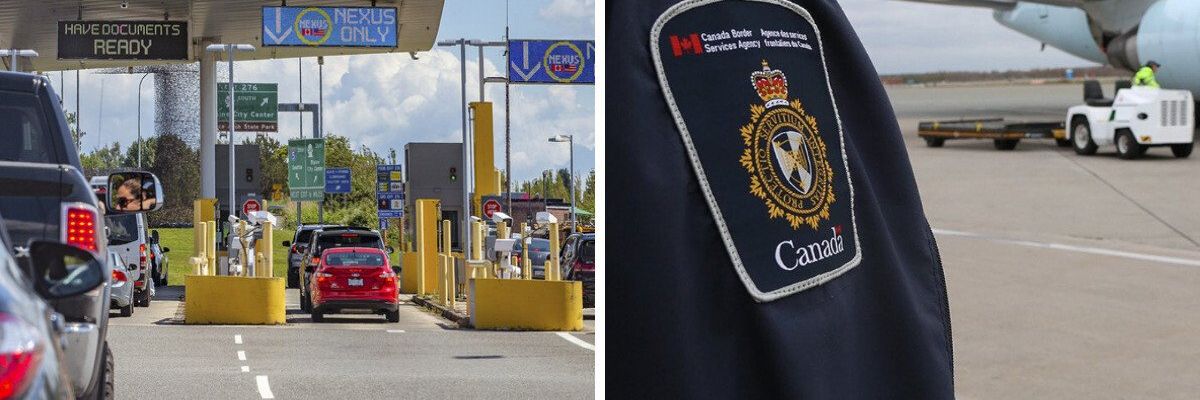
Planning to travel to the U.S. this summer? Crossing the Canada-U.S. border could be more difficult over the travel period this year, with the possibility of "significant disruptions," on the horizon.
Long wait times at Canada-U.S. border crossings across the country could be in store this summer after Canada Border Services Agency workers voted in favour of a strike.
The Public Service Alliance of Canada, a union which represents more than 9,000 CBSA employees, said Friday that 96 percent of its members voted in favour of taking job action ahead of the busy travel season.
"More than 9,000 members of the Public Service Alliance of Canada working for the Canada Border Services Agency (CBSA) have secured an overwhelming strike mandate which could lead to significant disruptions to the flow of goods, services and people at Canadian ports of entry as the busy summer season approaches," said the PSAC in a news release.
PSAC members at the CBSA include border services officers at airports, land entry points, marine ports, and commercial ports of entry, inland enforcement officers, intelligence officers, investigators, trade officers, and non-uniformed headquarters staff, the union says.
According to the Government of Canada, CBSA officers provide services at approximately 1,200 points across the country, including 117 land-border crossings and 13 international airports.
According to the PSAC, CBSA workers, who have been without a contract for over two years, could take job action as soon as June.
While no specific date was given, the PSAC says that both parties met at a Public Interest Commission hearing in April, with a report from the commission expected to be released before mediation sessions scheduled to begin June 3 to seek a resolution to the bargaining impasse. The union will "be in a legal strike position" following the release of the report, it says.
In a statement, the employer, the Treasury Board of Canada Secretariat, said that the government "is fully committed to reaching a fair and reasonable agreement for border services employees."
"We recognize that labour action is a legitimate part of collective bargaining. Employees have the right to strike, but at this time it is unnecessary. We are ready and willing to return to the bargaining table at any time," it said.
If CBSA employees do go on strike, travellers could be looking at disruptions at airports and borders across the country. As the PSAC notes, job action taken by CBSA workers in 2021 "nearly brought commercial cross-border traffic to a standstill, causing major delays at airports and borders across the country."
At the time, CBSA personnel began a work-to-rule strike, in which employees do their jobs exactly as outlined by the rules of their contract or job description, which can cause a slowdown or decrease in productivity as they are no longer working during breaks or during unpaid extended hours.
The job action led to backups and delays at the border before an agreement was reached to end the strike.
"At some major land borders wait times were several hours long both for travellers and commercial traffic, and there could be a similar impact on border services this summer," a representative from the PSAC Customs and Immigration Union told Narcity in an email.
"Our members voted overwhelmingly in favour of a strike mandate, which authorizes strike action if the employer does not address our bargaining issues — it does not necessarily mean we will go on strike," said the union rep.
"Taking job action is always a last resort and there is still time for the employer to address our concerns, but that window is closing."
This article's cover image was used for illustrative purposes only.
Crossing the Canada-US border could be more difficult this summer and here's why
Source: News Article Viral


0 Comments